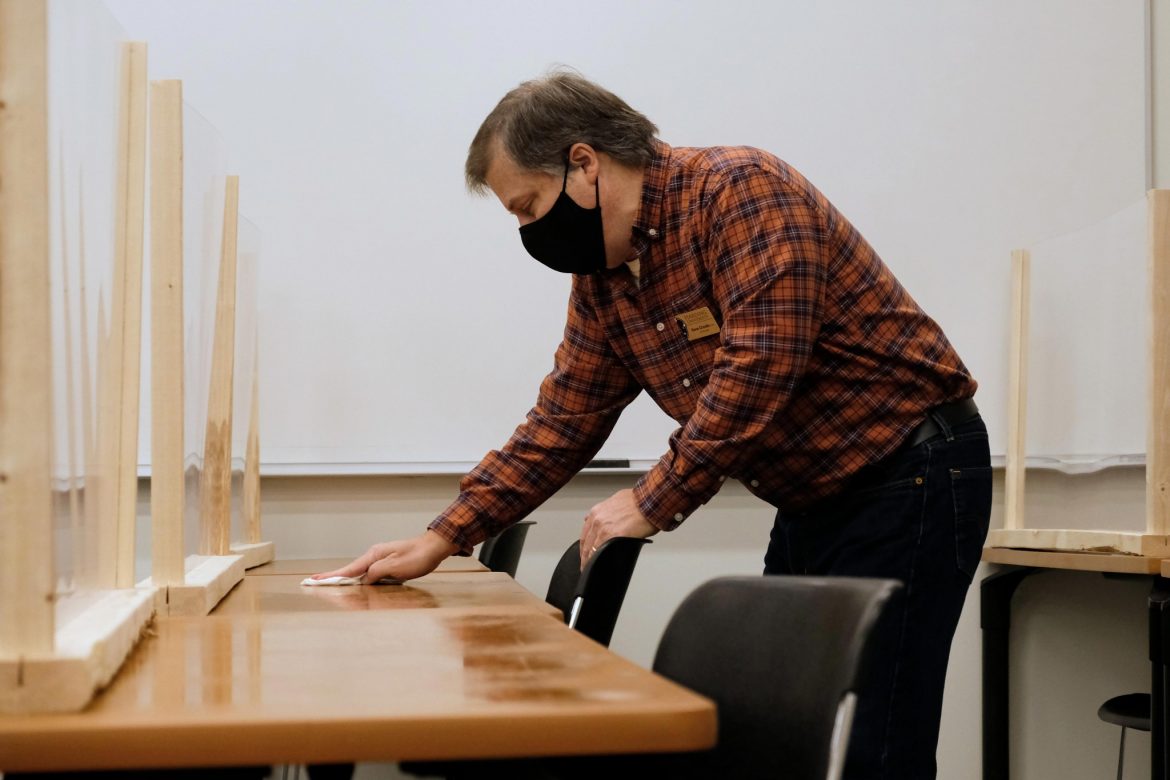Aramark Facility Services management rescheduled, retrained and hired additional cleaners after a Bison investigation in September found eight out of nine classrooms on campus not cleaned to the standards stated by Aramark and Harding University.
A follow-up investigation by this journalist into five randomly sampled buildings on the Harding University campus from Oct. 29 to Oct. 30 found an improvement in the classroom cleaning conducted by Aramark Facility Services. Out of 10 classrooms from five buildings — the Ganus Building, McInteer Bible and World Missions Center, Ezell Building, Donald W. Reynolds Center for Music and Communication, and Pryor-England Center for Science and Engineering — seven classrooms had been thoroughly cleaned by the Aramark night shift employees. Cleaners vacuumed the floors, wiped down the desks and emptied the trash.
The results of the previous investigation by this journalist from Sept. 24 to Sept. 28 found a 11.1% cleanliness rate, while the result of this subsequent investigation was 70% — a 58.9% improvement.
Johnny Bell, Aramark supervisor of the night shift which handles cleaning the classrooms, said they had recently restructured the schedule and hired more employees. The night shift now has eight employees, Bell said, instead of five. Bell said he had to fill in for multiple employees this semester due to employee quarantine and isolation, but when fully staffed he was able to focus on supervising and retraining cleaners.
“I usually try to work with at least three people every week,” Bell said. “I’ll spend a couple of days with [each employee] and then I will rotate when we have the full staff.”
Dr. Laurie Diles, associate professor and chair of the department of communication, spoke with Greg Maples, Aramark facility director at Harding, in October after she observed cleaning inconsistencies in the Reynolds building. Maples personally came and inspected the building, Diles said, and assigned additional personnel to help with cleaning. Diles said she expected a general level of cleanliness, but was sensitive to heightened concerns from COVID-19.
“As a professor during COVID, I knew that some students would probably have greater concerns than usual,” Diles said. “I don’t know that my own concerns are greater, but I feel a lot of responsibility for my colleagues and my students, that they feel like they’re going to a place that’s been cleaned up and is as clean as it can be.”
The Harding administration stocked classrooms at the beginning of the semester with wipes, hand sanitizer and disinfectant so faculty and students could personally clean their desks if concerned. Dr. Steve Choate, associate professor of art and design, stayed after his classes and cleaned the desks to help minimize the risk of COVID-19 exposure.
“We were told by our new chair, Amy Cox, that it would be the prudent thing for us to clean up after our students had left,” Choate said. “And I’m like most people, I think, in that I desperately want things to be normal.”
